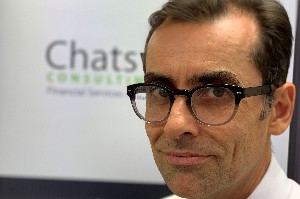Looking through the crisis? Or looking into it?
Data analysis is a useful skill – but showing you care and forging real emotional connections is going to be more helpful as we move through the coming months.
Thursday, April 16th 2020, 11:16AM
by Russell Hutchinson

Russell Hutchinson
There are some people who have built their own data-sets, models, graphs and charts.
It’s great fun if you’re wired that way – as I am – and a particular temptation for me as I have a data scientist on hand to stop me making a fool of myself and improve the quality of the modelling.
Diving into the data has its uses: it helped me to create a framework for processing the information that was constantly being blown at us through every channel. It also enabled me to establish a bullshit screen.
No, Covid-19 is not a hoax or a scam. Yes, it is worse that the seasonal flu. I know that smug self-congratulation based on raw case numbers is silly, but yes, we’re probably doing quite well.
Yes, Donald Trump is an idiot, but no, I don’t want you to send me more evidence of that, I already know that rain is wet.
All this has limits. I need to be able to look through the crisis to be able to plan and work on my business.
Looking through the crisis doesn’t mean wishing the days away or dreaming about "when everything is back to normal". The future will not look exactly like the past.
I wasn’t surprised that Bauer died, I only get a paper copy of The Economist because its virtually free with my digital subscription. Burger King was awful, now it is gone.
But the economic damage is real, it is huge, and talking about it does not mean that I don’t care about human life.
Just as I feel enormous empathy for the desperate situation of the UK, where there are thousands of deaths from Covid-19. I can also feel empathy for people who have had their jobs sacrificed in the fight against Covid-19 here.
Placing oneself in the experience of others means that I can imagine what they might be feeling. That’s useful on a personal and business level.
Financial services is well paid and being further on in my career I’m resilient. But an attitude of "I’m alright Jack" or "buck up, you don’t know how lucky you are" is not helpful in forging the real emotional connection that is required.
It remains true: they don’t care how much you know until they know how much you care.
A few days ago, I was on a call with a friend who was in tears about losing their job. Some of my favourite local cafés may not make it through. I know these people. I want them to be okay.
There may be job losses at some of my client companies. Taking the time to hear what is happening for people and responding to what is really going on for them rather than adopting someone else’s narrative is my goal for looking through the crisis.
Although I still need to do the other kind of data analysis, this is probably the skill that will really count beyond the next few weeks and months.
| « Two big questions in conduct law causing advisers concern, and its unintended consequences | Pricing strategy – choices and their meanings » |
Special Offers
Comments from our readers
No comments yet
Sign In to add your comment
| Printable version | Email to a friend |


